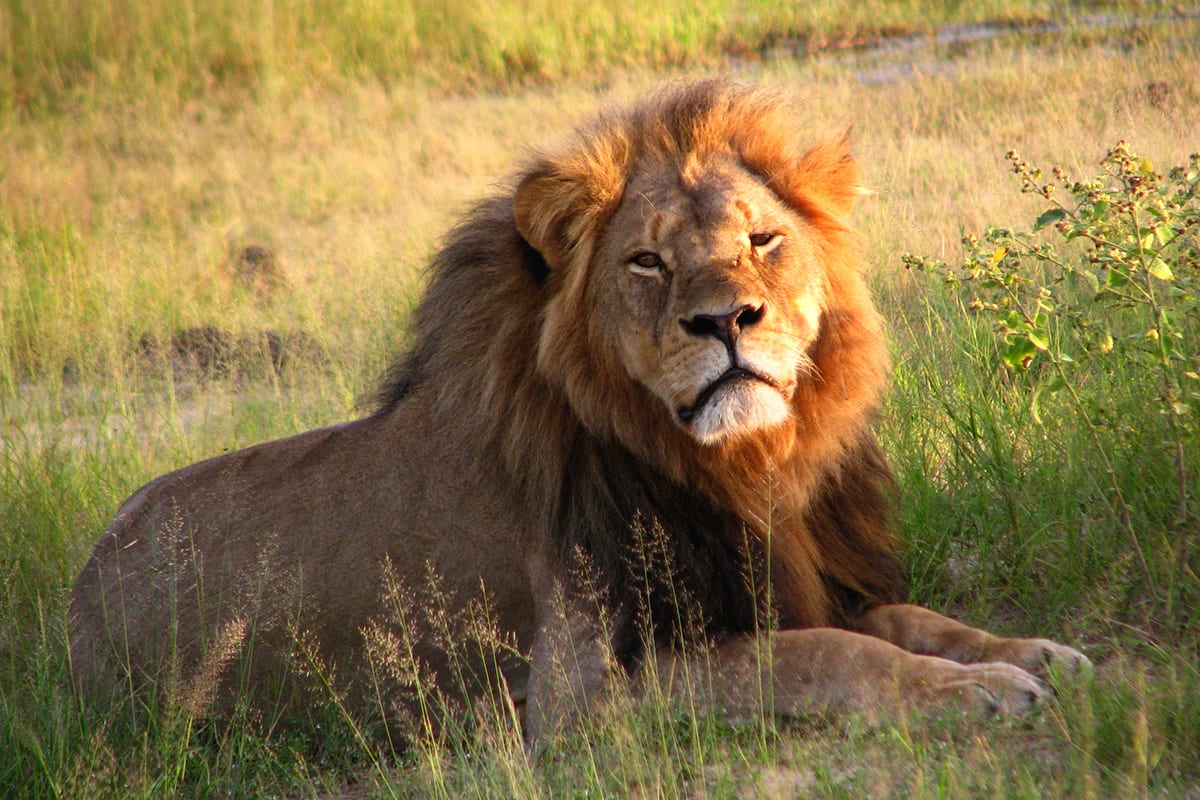What Cecil’s Death Teaches Us
By Janet Firshein, August 3, 2015

Cecil the lion at Hwange National Park in 2010.
In the reporting of the killing of a beloved lion in Zimbabwe by an American poacher, we were reminded how much one story can make a difference and influence opinions and attitudes. Thousands and thousands of magnificent animals like Cecil are killed every year by poachers. Yet, we rarely hear about it or debate its morality at the water cooler. According to a report by National Geographic just one year ago, 100,000 elephants were killed in a three-year period that way.
So why are we all so outraged, repulsed and moved to sadness about the fate of this lion? This TED Talk puts it into perspective for those of us who try to communicate issues, move opinion and inspire action.
The speaker talks about the “empathy telescope” and how much easier it is to put ourselves in the shoes of one person compared to filling the shoes of many. A story about the fate of one individual (or in this case one animal) is much easier on the brain and is more likely to resonate than having to take in a story about thousands or even millions.
In fact, neuroscience shows that simply using visual words (or active words) engage more parts of the human brain. For example, using the word “grasp” rather than “hold” activates the part of your brain that controls the movement of grasping. Similarly, describing something as “spongy” instead of “soft” engages the sensory region of the brain. Neuroscience research also has shown that our brains synchronize, with the same regions activated when we tell and hear a story.
We have many examples in our own work of how powerful stories can stimulate emotion and influence change. The tragic story about the 12-year-old Deamonte Driver, who died too young and needlessly because he couldn’t access dental care for a simple toothache, did more to expand Medicaid coverage than hearing about the tens of thousands without access every day.
We deliver the message all the time in our work with clients—stories matter. The tragic story of one lion named Cecil reminded us why.